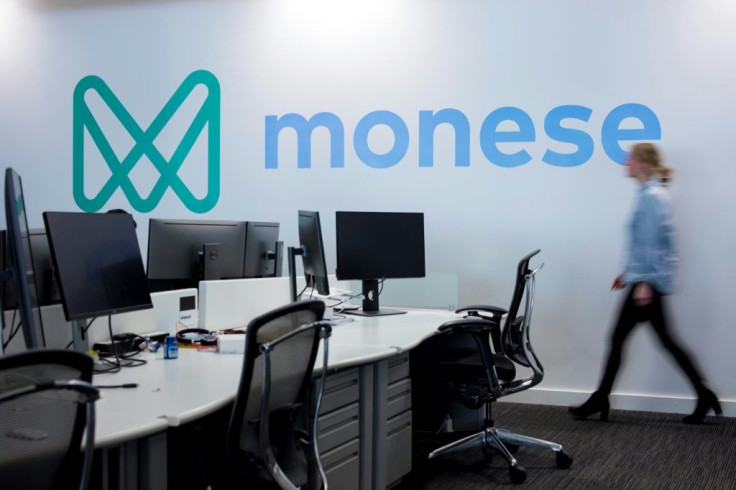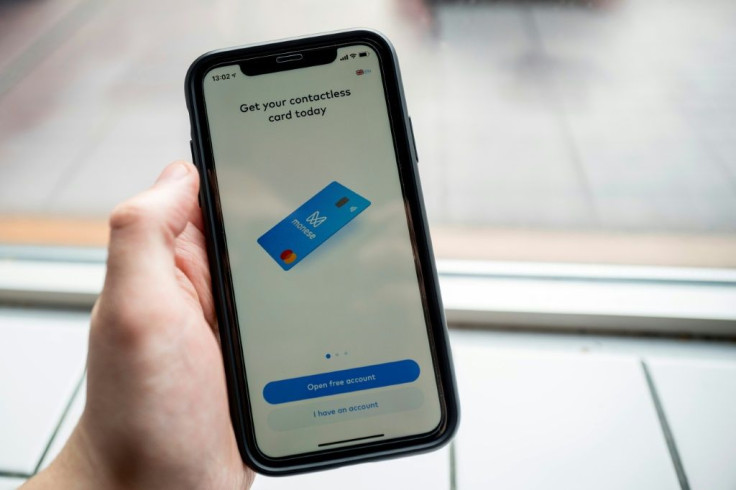UK Digital Bank Serves Clients Shunned By Big Lenders

Among Britain's digital app-based banks that are attracting moneyed urban millennials is Monese, which also courts customers neglected by the country's established lenders.
In early 2000, Estonia-born entrepreneur Norris Koppel arrived in Britain and spotted a major gap in UK banking for newly-arrived foreigners who had trouble opening traditional accounts.
Koppel was snubbed by banks owing to a lack of address documents and no credit history -- and vowed to help those in a similar predicament.
In the nation's booming financial technology or fintech sector, mobile phone app-based "neo-banks" such as Revolut, Monzo and Starling have established themselves as plucky upstarts.
Koppel's lender Monese joined them, expanding to 31 nations in Europe with two million customers in only five years of operation.
"Investor trust in Fintechs and the amount of investment being poured into neo-banks is actually very significant; it hasn't really slowed down. 2019 was definitely a peak point so let's see how 2020 goes," Koppel told AFP.
"It's very clear that banking is going through fundamental changes .. and there are a group of neo-banks including Monese who are on top of that wave."
The company describes itself as an electronic money institution that provides banking facilities -- but it does not currently offer credit.

"Monese was born from my own very personal frustration," Koppel explained.
"When I moved to the country I couldn't open a simple account and I thought maybe that is something that can be done.
"Monese is built for people who are moving to a different country, starting a new life, finding a better job, retiring, going for studies, or getting married somewhere else," he added.
In Britain, around 80 percent of Monese customers are foreigners whose salary goes directly into their account.
Groups like Monese that only operate online carry out checks to verify the identity of new applicants to help fight money laundering.

The app aims to compete with Revolut and Monzo, which have eight million and three million customers respectively in a fiercely competitive market.
Monese expects to turn a profit by 2021.
Monese, which has a global workforce of roughly 400 people, describes itself as the "Uber of banking", in reference to the popular ride-hailing app.
"It's a good comparison," Koppel said, noting that it was used by a lot of gig-economy workers at Uber and takeaway delivery service Deliveroo.
Britain's traditional banking sector, which is still reeling from the 2008 global financial crisis and a string of product mis-selling scandals, retains a strong grip on personal banking, experts say.
Warwick University's Andreas Kokkinis, who specialises in corporate law and financial regulation, told AFP that fintech was gaining a foothold however.
"The six biggest UK banks have 87 percent of the market share for current accounts so the remaining 13 percent is split amongst smaller conventional banks and building societies, and challenger banks," he said.
"In that sense large universal banks -- HSBC, Barclays, Lloyds Banking Group, Royal Bank of Scotland Group and Santander UK -- retain their dominance over UK retail banking market.
"However, challenger banks, which operate exclusively online and thus offer cheaper services, are popular amongst customers below the age of 37."
Kokkinis added that, if current trends persist, "the market share of challenger banks will grow significantly in the near future," which could lead to takeovers.
"This does not necessarily mean that large banks will lose their dominant position in retail banking markets.
"What is more likely to happen is that large banks will acquire successful challenger banks."
Monese is now in fundraising talks that could give it coveted unicorn status -- meaning that the business would be valued at more than ?1.0 billion ($1.3 billion, 1.2 billion euros).
The company is seeking ?100 million in additional funds from new and existing shareholders, which include US online payments specialist Paypal and British Airways parent group IAG.
© Copyright AFP 2024. All rights reserved.




















